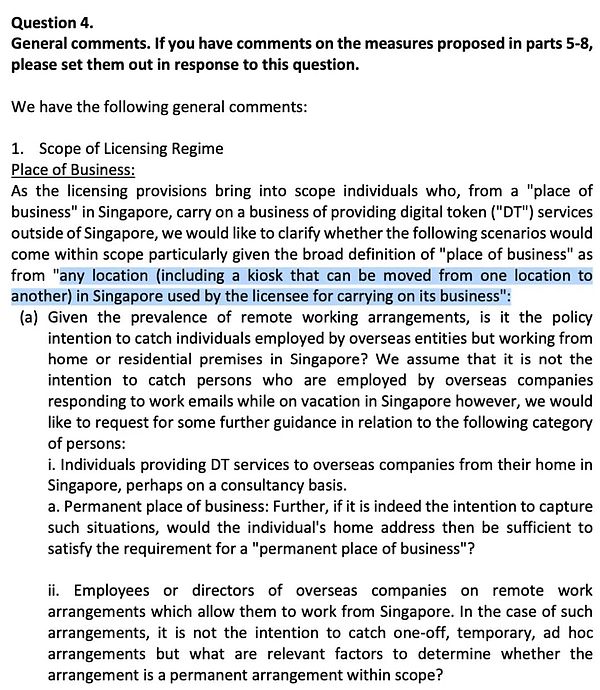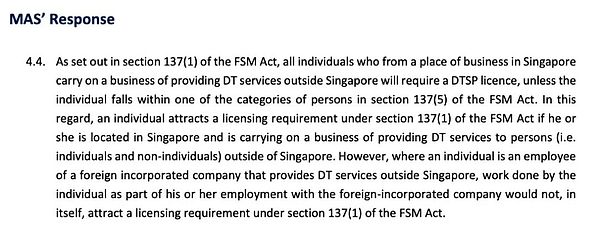The Monetary Authority of Singapore (MAS) released a response document on the new regulations for digital token service providers (DTSP) on May 30, 2025. Many people have not yet realized that this will actually affect the entire Asian Web3 industry.
The new regulations will be officially implemented on June 30, 2025, and MAS has made it clear that there will be no buffer period! A large-scale "Singapore Web3 retreat" may have quietly begun.
"We will be extremely cautious." When MAS expressed this attitude unabashedly in this harshly worded consultation document, Singapore, once hailed by global Web3 practitioners as "Asia's crypto-friendly paradise", is bidding farewell to the past in an unexpected way - not a gradual policy adjustment, but a nearly "cliff-like" tightening of regulation.
For those project parties and institutions that are still on the sidelines, this may no longer be a question of "whether to leave", but a choice of "when to leave" and "where to go".
Past glory: the golden age of regulatory arbitrage
Remember Singapore in 2021? When China banned cryptocurrency trading and the US SEC waved its regulatory stick everywhere, this small island country welcomed Web3 entrepreneurs with open arms. Three Arrows Capital, Alameda Research, FTX Asia Headquarters... One by one, famous names chose to settle here, not only because of the 0% capital gains tax, but also because of the "embracing innovation" attitude shown by MAS at that time.
Singapore at that time was called the "holy land of regulatory arbitrage" in the Web3 industry. Registering a company here can legally and compliantly provide digital asset services to global users except Singapore, while enjoying the reputation of Singapore's financial center. This business model of "being in Singapore, caring about the world" once attracted countless Web3 practitioners.
Now, Singapore's new DTSP regulations mean that Singapore has completely closed the door to regulatory friendliness. Its attitude can be simply stated in one sentence: kick out all those without licenses in the Web3 industry from Singapore.
What is DTSP? A definition that makes people "think deeply and be terrified"
DTSP stands for Digital Token Service Provider. According to the definition in Section 137 of the FSM Act and the content of Document 3.10, DTSP includes two types of entities:
1. An individual or partnership operating from a business premises in Singapore;
2. A Singapore company that conducts digital token service business outside Singapore (regardless of whether the company is from Singapore or elsewhere)

This definition may seem simple, but it actually hides a hidden danger.
First of all, what is the definition of "business premises" in Singapore? MAS defines "business premises" as "any place in Singapore used by a licensee to carry on business (including a stall that can be moved from one place to another)".
Note several key points in this definition:
"Any place": There is no restriction that it must be a formal commercial place
"Including stalls": Even mobile stalls are included, showing the wide scope of supervision
"Used to conduct business": The key is whether business activities are carried out at the location
To put it simply, as long as you are not licensed in Singapore, you will be at risk of violating the law if you conduct any business involving digital assets in any place, whether you are a local company in Singapore or an overseas company, whether you are targeting local or overseas customers.
So is working from home against the law?
In response to this issue, law firm Baker McKenzie submitted feedback to MAS in a document.

Baker McKenzie specifically sought clarification from MAS on this issue:
"Given the prevalence of remote working, is MAS's policy intention to cover individuals who are employed by overseas entities but work from their homes or residential premises in Singapore?"
The law firm's concerns are very realistic. They listed several possible scenarios:
Individuals providing DT services to overseas companies from home(possibly of a consulting nature)
Employees or directors of overseas companies, working in Singapore under a remote work arrangement
But at the same time, law firms also tried to provide some "amulets" for those working from home:
"Based on the drafting of the current legislation, it could be argued that home or residential premises should not be included as home or residential premises are not generally understood to be the place where the licensee carries on business."
However, MAS poured cold water on this issue:
“Under section 137(1) of the FSMA, every person who carries on a business of providing digital token services to persons outside Singapore from a place of business in Singapore is required to obtain a DTSP licence unless the person falls within a class of persons specified in section 137(5) of the FSMA. In this regard, if an individual is located in Singapore and carries on a business of providing digital token services to persons outside Singapore (i.e. individuals and non-individuals), the individual is required to apply for a licence under section 137(1) of the FSMA. However, if the individual is an employee of a foreign-incorporated company that provides digital token services to persons outside Singapore, the work performed by the individual as part of his/her employment with the foreign-incorporated company will not in itself trigger the licensing requirement under section 137(1) of the FSMA.”
and
"However, if these individuals work in a shared office space or in the offices of an affiliated company of an overseas entity, then they are obviously more likely to be included in the scope."

To sum up the new regulations:
Without a licence, neither an individual nor a company may carry on business in Singapore or for overseas customers at any business premises in Singapore.
If you are an employee of an overseas employee, working from home is acceptable
However, there are many ambiguities in the new regulations:
MAS's definition of an employee is very vague. Is the project founder considered an employee? Is holding shares considered an employee? MAS has the final say
If you are a BD or salesperson of an overseas company, and you go to someone else's shared office to discuss business, does it count as conducting business at the business premises? MAS has the final say
The vague definition of digital token services, may KOLs also be affected?
MAS's definition of digital token services covers an astonishingly wide range, covering almost all relevant token types and services. Even the release of research reports is included?
According to item (j) of the First Schedule to the FSM Act, the scope of supervision includes:

"Any service related to the sale or offer of digital tokens, including: (1) providing advice related to digital tokens directly or through any form (electronic, printed or other) such as publications, articles, or (2) providing advice related to digital tokens by publishing or disseminating research analysis or research reports (electronic, printed or other)"
This may mean that if you, as a KOL or institution, publish a report analyzing the investment value of a token in Singapore, you may theoretically need a DTSP license, otherwise it may be judged as illegal.
The Blockchain Association of Singapore sent a soul-searching question to MAS on this issue in its feedback:
"Will traditional research reports be considered related to token sales or offers? How should participants distinguish research reports related to token sales or offers?"
MAS did not give a clear answer, and this ambiguity can be said to make all content creators tread on thin ice.
Which groups may be affected?
Personal identity type (high risk)
Independent practitioners: including developers, project consultants, market makers, miners, etc.
Content creators and KOL: including analysts, KOL, community operations, etc.
Core project personnel: including founders, BD, sales and other core business personnel
Institutional type (high risk)
Unlicensed exchanges: CEX, DEX
Project parties: DeFi, wallets, NFT, etc.
Conclusion: The end of the era of regulatory arbitrage in Singapore
A terrifying reality emerges: Singapore is serious this time, and all non-compliant people are to be "expelled" from Singapore. As long as they are non-compliant, almost any activity related to digital tokens may be included in the scope of supervision. Whether you are in a luxury office building or on the sofa at home, whether you are the CEO of a large company or a freelancer, as long as it involves digital token services.
And because there are a lot of gray areas and ambiguities in the definitions of "business premises" and "conducting business", MAS is likely to adopt a "case-oriented" enforcement strategy - kill a few chickens first, then scare the monkeys.
Want to embrace compliance at the last minute? Sorry, MAS has made it clear that it will approve DTSP licenses in an "extremely cautious" manner and will only approve applications in "extremely limited circumstances."
In Singapore, the era of regulatory arbitrage has officially ended, and the era of big fish eating small fish has arrived.
 Weatherly
Weatherly







